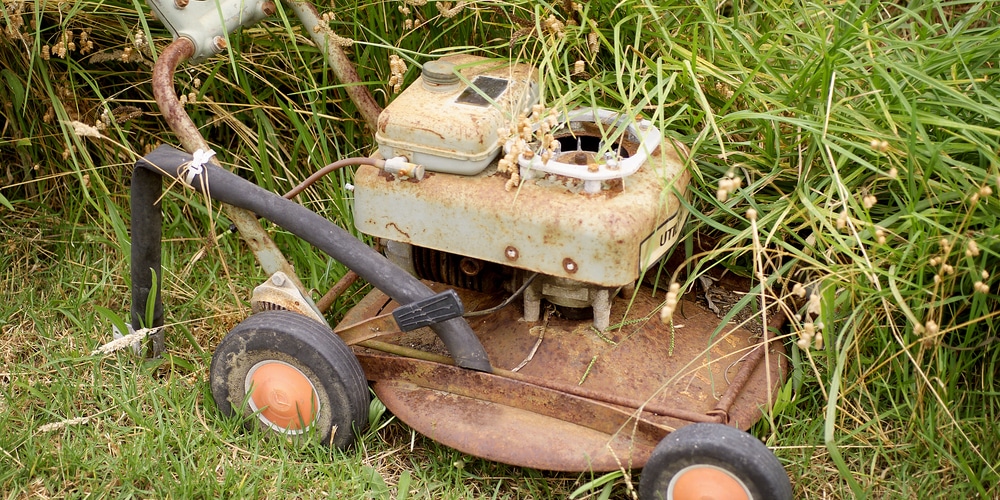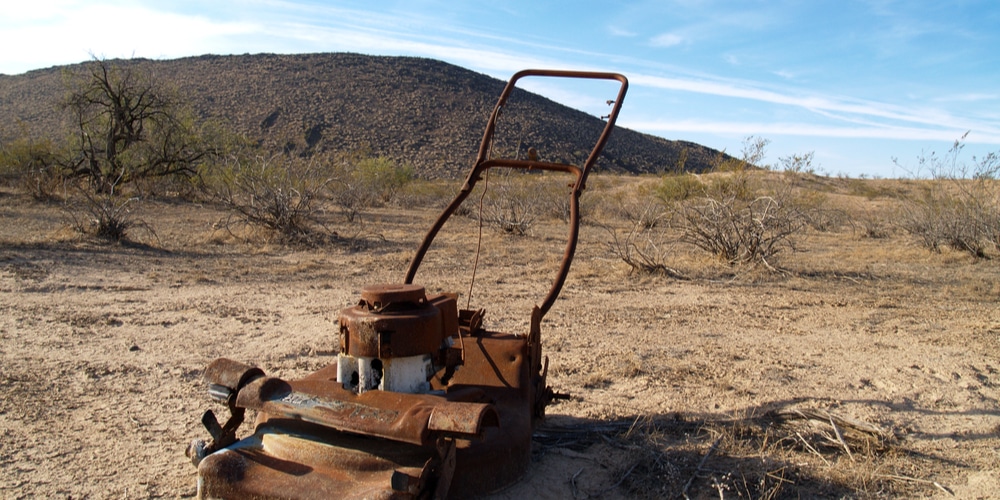Most things don’t last forever. And the same is true for lawnmowers, even when we buy high-quality ones. But have you ever wondered: “Can you scrap a lawn mower?”
If your lawnmowing equipment is beyond repair, you can scrap it. Don’t leave it rusting in your yard. But also, avoid placing it in the trash: you can get some compensation for the metal parts.
Of course, if your equipment is still working, you might be better off selling it as a second-hand machine. You can do so through Facebook or Craiglist, but beware of scammers!
You are in the right place to clear all your doubts about it!
Can you Scrap A Lawn Mower?

The truth is that yes, you can scrap a lawnmower. But if you get it to the scrapyard with your old lawnmower, you might only get the money for the aluminum breakage. Sometimes, you’ll get an amount of money in proportion to the weight of your tool.
Most push lawnmowers weigh between 50 and 90 pounds, and riding products can get up to 600 pounds. But still, the value of your scrap depends on the material it consists of.
A steel push mower can have a value of about $3. Aluminum products are worth slightly more: you might get between 3 and 6 dollars, depending on how heavy your tool is. Finally, riding lawn mowers are heavier: they are usually worth between 10 and 18 dollars.
By learning how to separate the different metal components from the materials that are not suitable for scrapping, you’ll get more value out of your old lawnmower.
Indeed, the scrap yard will pay you more money if you do the disassembly work for them! And the process sounds more challenging than it is! Jump to the following sections to learn about disassembling, separating, and disposing of your old lawnmower!
Disassembly
To begin with, you must empty the gas tank. You can do so by running your mower until it won’t work anymore and turning it on until you can’t. However, you might waste a lot of gasoline following this procedure.
If you have a considerable amount of gas in your mower, consider using a siphon hose to take it out of the tank and place it in an uncontaminated container. For best results, get a product that comes with a hand pump: never use your mouth to make suction when gasoline is involved!
After that, tilt your lawnmower to the side and remove the center bolds that keep the blade in place. Don’t forget to wear thick gloves to prevent injuries. Add the metal parts to your scrap pile.
Then, remove the oil reservoir plug to drain the oil: it is usually beneath the blade at the center of the mower’s deck. Remove the bolts that keep the tires in place.
If the hubs are metal, cut the rubber tires off using a knife: don’t forget to wear gloves and safety goggles to prevent injuries. You can also create a separate pile for non-metal waste!
Then, remove the handle from the deck. Take away the cables connecting it to the engine and add the handle to the metal scrap pile.
Finally, remove the engine from the deck: there are usually around four or five bolts holding it down. Pull away non-metal components (wires, filers, plastic parts, and rubber plugs) and unbolt the transmission.
Separation and Disposal
Test with a magnet the “metal” parts. Those that stick to them are metal. Separate them from aluminum, which tends to have a higher value at the scrap yard. Bring everything to the scrap yard. By classifying the parts yourself, you might earn double the amount you would without it!
Can You Scrap A Lawn Mower?: The Bottom Line
So, in essence, yes: you can scrap your lawnmower. Its value might depend on the number (and weight) of metal parts it contains.
But scrapping should be your final option: the one you run into if you don’t have anything else to do with your lawnmower. Indeed, you might get more money by repairing your tool and selling it. Don’t be afraid to use social networks to contact the right people!
If you decide to scrap it, ensure you find a high-quality firm to take hold of your equipment.
You may also like: A Guide to the best lawnmower blade for thick grass
